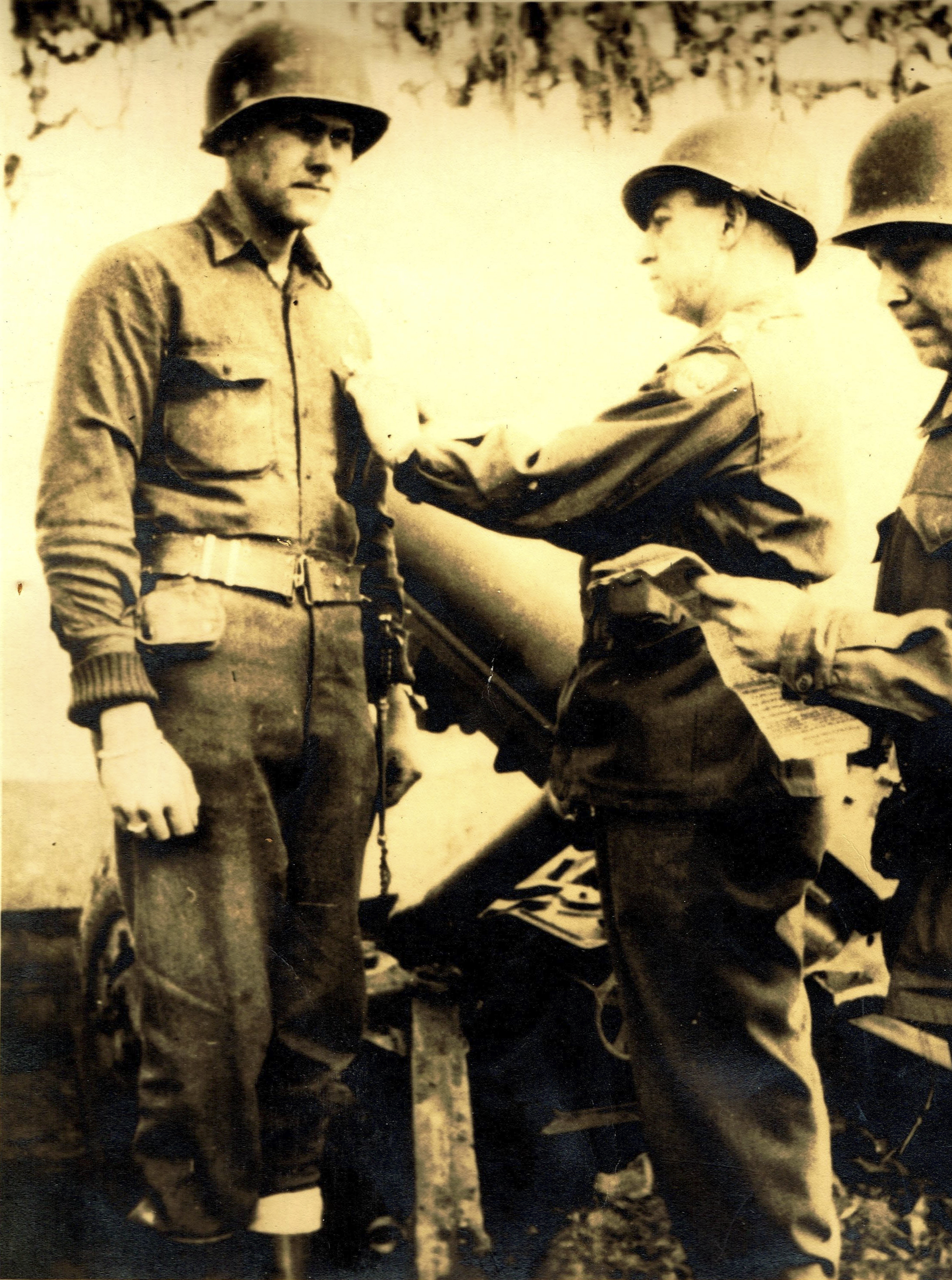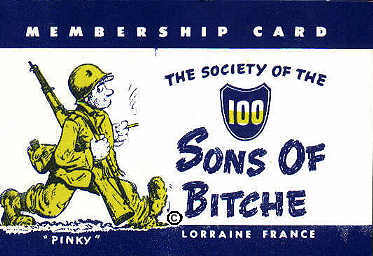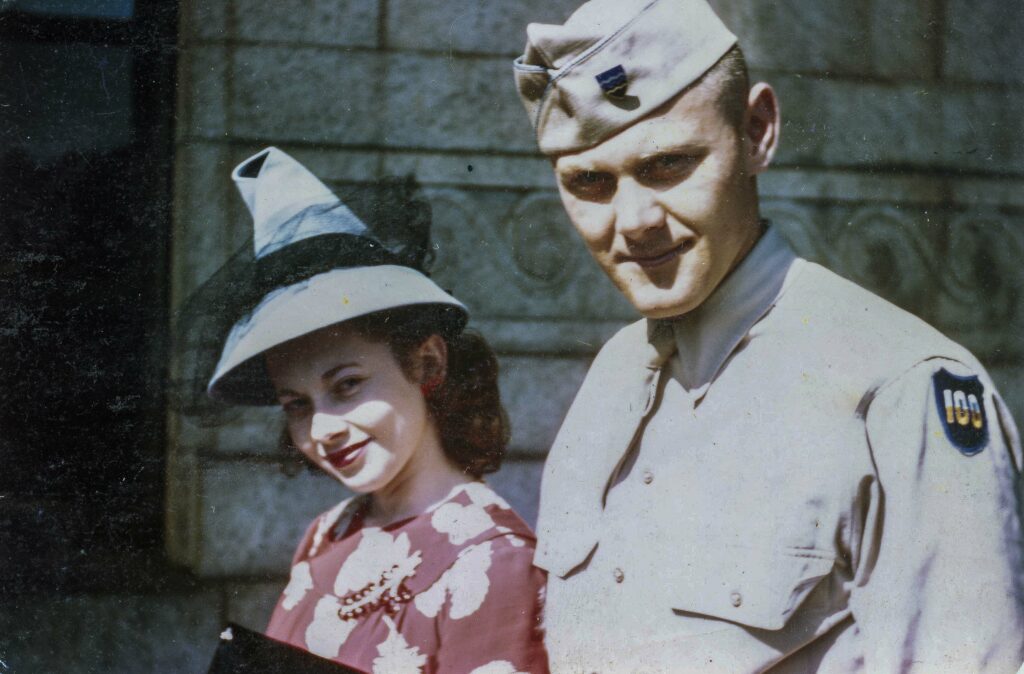
My father, Walter E Scribner, Jr. (1922-1971), entered the military in 1943. He sailed across the Atlantic in the fall of 1944, and disembarked, with his division, the 100th (known as the Century Division) at the port of Marseilles, France in late October, 1944.

Based on the chronicles of the Century Division, and his regiment, the 397th, plus his war diary, he entered combat in November 1944. He participated in the Vosges Mountain campaigns and was a member of the contingent that captured the Bitche Citadel (which entitled him to become a lifetime member of the famous “Sons of Bitche“).
As 1944 drew to a close, Hitler launched the Ardennes Counteroffensive, which became known as the Battle of the Bulge. However, his last major offensive, not discussed much in the history books, was Operation Nordwind, what has become known as the Second Battle of the Bulge…It’s objective – divert attention from his attack in the Ardennes, with the goal to draw Patton’s US 3rd Army away from the Ardennes theater. 17 German divisions made an attempt to cut off several American divisions, including the 100th. Dad participated in the effort to stop the Nazis in their tracks. On December 30, he participated in a counter-offensive in Beitveiler, France, near the German border, for which he was awarded a Bronze Star. The next day, December 31, 1944, he fought in the Battle of Rimling (France) against the vaunted 17th SS Panzergrenadiers—the “Götz von Berlichingen Division.
His war diary has scant but chilling entries during this time. I know from family members that conditions were brutal. He lost a best friend in battle. He and another soldier out on a scout mission hid under a log in the snow overnight to escape detection by a German patrol. The war became close and personal – hand to hand combat – included. In late January 1945, he developed hepatitis and was evacuated to a rear line hospital for a slow recovery. We all believe this may have saved him, as he did not go back into action for several months. My mother told me a few years before her death that Dad would wake up in the middle of the night, remembering some of the horrors. Dad never discussed his awful experiences with me before he passed away – but he did recant experiences that did not directly involve the tragedies of war.
After the war ended in Europe in May 1945, he served as a member of the occupation army. I remember him telling me that at one point, as a corporal, he was put in charge of 200 Polish prisoners of war. I did not understand the context of this assignment, as Poland was an ally. Many years later, I read that many Poles had been conscripted into the German Army, at gunpoint for all intents and purposes, after Poland fell in September 1939. Dad also told me that they were not sure if his division would be called on to participate in the invasion of Japan…I believe there were 3 tense months for the 100th before the atomic bombs were dropped in August of that year, to end the war in the Pacific.

Dad returned to the States in February 1946, his service to his country concluded. After the troop ship landed in New York’s harbor, he took a train home to Baltimore. My aunt, his little sister, told me a great story, about him walking through the door of my grandparents house on Pulaski Street in Baltimore the day he got home. I like to imagine what that felt like for his parents, my grandparents, that day…they were so lucky to get him home. And, likewise, so was I…
